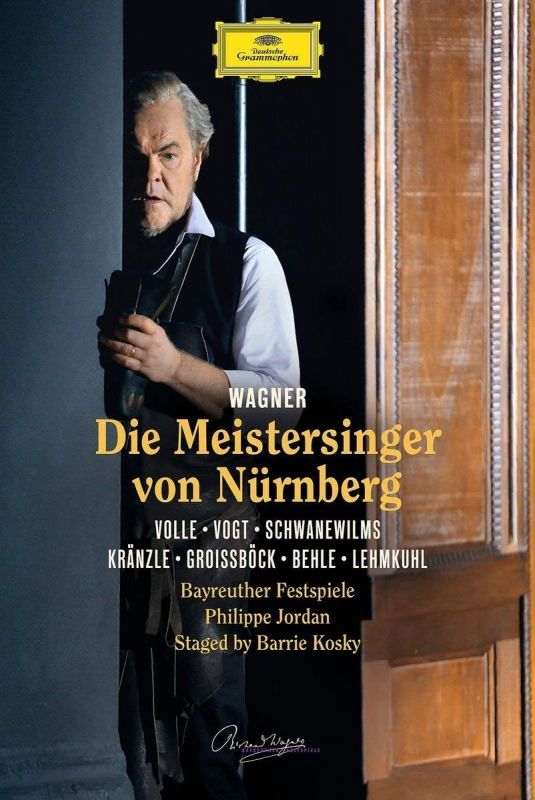WAGNER Die Meistersinger von Nürnberg (Jordan)
View record and artist detailsRecord and Artist Details
Composer or Director: Richard Wagner
Genre:
Opera
Label: Deutsche Grammophon
Magazine Review Date: 10/2018
Media Format: Digital Versatile Disc
Media Runtime: 283
Mastering:
DDD
Catalogue Number: 735450

Tracks:
| Composition | Artist Credit |
|---|---|
| (Die) Meistersinger von Nürnberg, '(The) Masters |
Richard Wagner, Composer
Anne Schwanewilms, Eva, Soprano Bayreuth Festival Chorus Bayreuth Festival Orchestra Daniel Behle, David, Tenor Günther Groissböck, Pogner, Bass Johannes Martin Kränzle, Beckmesser, Baritone Klaus Florian Vogt, Walther, Tenor Michael Volle, Hans Sachs, Baritone Philippe Jordan, Conductor Richard Wagner, Composer Wiebke Lehmkuhl, Magdalene, Contralto |
Author: Mike Ashman
Act 2 is set on a grassy field and briefly returns Sachs and Eva to their original frame characters. But the act’s climax, apart from some skilful direction and ‘blocking’ of the often autopilot Sachs/Eva, Eva/Walther and Sachs/Beckmesser dialogues, puts the production back in sync with a now almost obligatory show of anti-Semitic treatment towards Beckmesser. This riot becomes a crudely staged pogrom with big inflatable Jewish head and face mask squarely aimed at the Marker.
Act 3 plays in the Nuremburg trial court room and the Festwiese showcases more pantomime medieval costumes and the American soldier guard as symbolic reference. Unfortunately it’s pedestrianly staged, including aged Jewish demons teasing Beckmesser, although the ‘blessed’ Quintet is saved by the emotional energy of Schwanewilms’s Eva – a constant throughout. The Festwiese dance sections are a particular desert of ideas and banal flag-waving. Then, after Walther’s refusal to be a Master, the stage is cleared apart from Sachs on the trial stand. The chorus re emerge on a truck from upstage dressed as a performing orchestra and chorus for him to conduct the final pages.
Generally popular with both press and public, the result now seems like a messy missed opportunity. But there’s working time to come and Kosky, no intellectual slouch in his ‘day job’ at Berlin’s Komische Oper, could rebalance his strategies and paint in work that’s not yet finished. The performances of the cast are of a high standard dramatically and mostly musically. Volle now paces himself well and Lehmkuhl is a magical and unclichéd Magdalene but you may long for more body in Walther’s voice than Vogt’s familiar angelic tones can manage. Philippe Jordan relates pit carefully to stage without finding anything markedly individual. On rival DVDs you will find two more conventional Bayreuth productions from Wolfgang Wagner (conducted by Stein on DG, and Barenboim – EuroArts, A/08) and one far less from his daughter Katharina (Weigle – Opus Arte, 3/11); for a middle road, look for the Götz Friedrich/Frühbeck de Burgos Deutsche Oper recording (Arthaus, 4/01).
Discover the world's largest classical music catalogue with Presto Music.

Gramophone Digital Club
- Digital Edition
- Digital Archive
- Reviews Database
- Full website access
From £8.75 / month
Subscribe
Gramophone Full Club
- Print Edition
- Digital Edition
- Digital Archive
- Reviews Database
- Full website access
From £11.00 / month
Subscribe
If you are a library, university or other organisation that would be interested in an institutional subscription to Gramophone please click here for further information.




